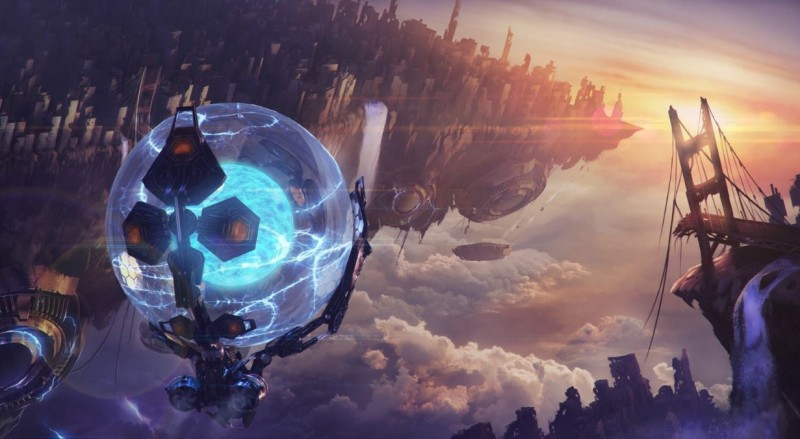
In today's ever-changing world, science fiction dystopian novels have gained immense popularity due to their ability to capture our imaginations and shed light on various societal issues. These novels often present a bleak and oppressive future, warning us about the potential consequences of our current actions and decisions. Through intricate storytelling, thought-provoking themes, and vivid world-building, dystopian novels serve as a mirror that reflects the flaws and challenges of our own society. In this article, we will explore the power of science fiction dystopian novels to address societal issues and the lasting impact they have on readers.
Introduction
Science fiction dystopian novels take readers on captivating journeys to fictional futures where societies have fallen into disarray, plagued by a range of issues. These novels provide a platform for authors to express their concerns about the present while projecting potential outcomes if certain societal problems are left unaddressed. By examining these imagined worlds, readers gain valuable insights into the consequences of unchecked power, inequality, and environmental degradation.
Understanding Dystopian Fiction
Dystopian fiction is a genre that portrays an undesirable future society characterized by oppressive governments, social injustices, and various forms of control. These novels often revolve around protagonists who challenge the status quo and fight against the oppressive systems. Dystopian worlds are meticulously crafted by authors who weave intricate narratives that captivate readers and offer social commentary.
Exploring Societal Issues
Environmental Degradation
One of the most prevalent themes in dystopian novels is environmental degradation. Authors envision worlds devastated by pollution, deforestation, and climate change, emphasizing the consequences of neglecting our planet. Through vivid descriptions and cautionary tales, these novels urge readers to take action and protect our environment before it's too late.
Government Surveillance and Control
Dystopian novels frequently explore the dangers of excessive government surveillance and control. They raise concerns about privacy invasion, censorship, and the erosion of individual freedoms. By highlighting the potential abuses of power, these novels encourage readers to be vigilant and question authority, fostering a sense of critical thinking and awareness.
Social Inequality
Another recurring theme in dystopian novels is social inequality. These books showcase societies divided into distinct classes, where the privileged few exploit and oppress the marginalized majority. By shining a light on this injustice, authors prompt readers to examine the real-world disparities and strive for a more equitable society.
Loss of Individuality
Dystopian fiction often portrays a loss of individuality in heavily regulated societies. Characters face conformity, uniformity, and suppression of personal expression. These narratives serve as a reminder of the importance of embracing diversity and preserving individuality in our own lives.
The Role of Technology in Dystopian Novels
Technology plays a significant role in dystopian novels, both as a tool for control and a means of resistance. Authors explore the potential consequences of unchecked technological advancements, such as AI-driven surveillance systems, dystopian governments' control over information, and the dehumanizing effects of excessive reliance on technology. These cautionary tales prompt readers to reflect on the ethical implications of our technological progress and the need for responsible innovation.
Psychological Effects of Dystopian Fiction
Reading dystopian novels can have profound psychological effects on readers. They evoke a range of emotions, from fear and unease to hope and resilience. Engaging with these narratives allows readers to develop empathy for the characters and fosters critical thinking about the societal issues presented. It also serves as an outlet for readers to confront their fears about the future while inspiring them to take an active role in shaping a better world.
Influence on Real-World Movements
Dystopian novels have a remarkable ability to influence real-world movements and ignite social change. They serve as catalysts for discussions about the direction of society, stimulating conversations about environmentalism, social justice, and political activism. By providing alternative visions of the future, these novels inspire individuals to question the status quo and actively work towards a more just and sustainable world.
Criticism and Controversies
Despite the positive impact of dystopian novels, they are not without criticism and controversies. Some argue that these narratives can be excessively pessimistic and contribute to a sense of hopelessness. Others claim that certain novels perpetuate harmful stereotypes or fail to offer viable solutions. It is important to engage in nuanced discussions about these concerns while recognizing the value these novels bring to societal discourse.
The Importance of Dystopian Novels in Today's Society
In our rapidly evolving world, dystopian novels serve as vital tools for societal reflection and introspection. By presenting exaggerated yet plausible futures, these novels challenge readers to reevaluate their values, question prevailing norms, and actively engage in shaping a more equitable and sustainable future. The enduring popularity of dystopian fiction attests to its ability to captivate readers and inspire meaningful change.
Conclusion
Science fiction dystopian novels hold a mirror to society, reflecting our greatest fears, flaws, and potential consequences. Through thought-provoking narratives and vivid world-building, these novels shed light on a wide range of societal issues, from environmental degradation to social inequality. They encourage readers to contemplate the future of our world and take action to address the challenges we face. By reading and engaging with dystopian fiction, we can foster a deeper understanding of the complex issues that shape our society and work towards a brighter future.
Tomato Trending: Expecting a Decrease in Tomato Prices soon
Indian Team Emerges Victorious in Asian Kabaddi Championship, PM Greets